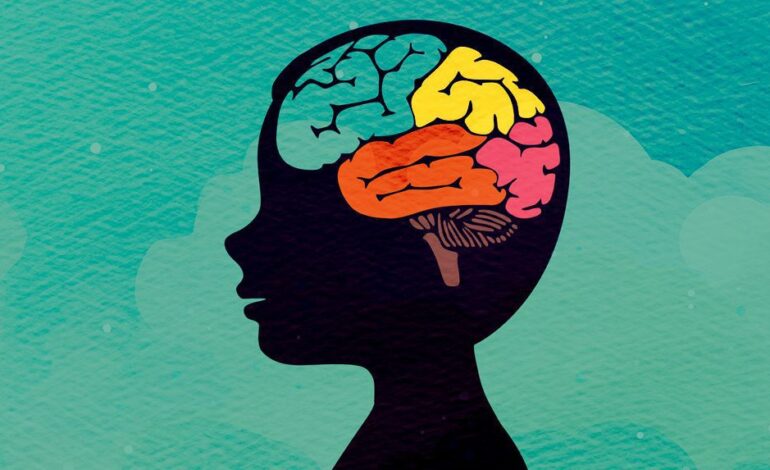
I am a mentor. I have been a mentor for almost twenty years. And I am happy to say that my mentorship has been an enriching experience for both myself and my mentees. Mentoring is the best thing in the world. Whether you’re an expert, an up-and-comer, or just starting out in your career, being able to share what you know and help another person reach their goals is one of the most rewarding experiences there is.
In this article, I will share some of the benefits of being a mentor, which include: learning about yourself through self-reflection; gaining perspective on your own career path; helping others achieve their goals; and just generally being kinder to people who may not have anyone else in their corner.
It is easy to be cynical about mentoring.
Mentoring is an interesting relationship. Finding the ideal mentor or mentee can be frustrating and perplexing. However, it’s amazing when you do come across someone who can connect to what you’re going through and helps you on your journey. It can be easy to be cynical about mentoring—that it’s just some kind of assembly line where mentors give their advice and skills away without getting anything in return—but once in a while we get lucky enough to meet someone who really gets us, sees potential in our work, and wants nothing more than for us to succeed at becoming better at whatever it is we do.
A great mentor will not only help you achieve your goals but also teach you something about yourself along the way.

A mentor is someone who invests in your progress and satisfaction.
Mentors help you learn new skills, develop new ideas, grow as a professional, improve your career and gain confidence. They also help you develop your personal brand by sharing their expertise with you. It is a two-way street. A mentor has something to offer a mentee, but the mentee has something to offer their mentor as well.
When you’re mentoring someone whose learning style is different from yours, or who has different priorities and goals, there’s so much you can learn about your profession. You might get new ideas for problem solving, or find better ways of approaching old problems. You might discover how to put yourself in the shoes of someone who isn’t as comfortable with technology as you are; or maybe they’ll inspire you to try something new in your career path.
In my experience working with students at all different levels of study (from high school through postdoc), I have seen that having someone who believes in your potential can help push you forward when you’re feeling stuck or discouraged or even hopelessly lost—and that’s really important!
Being a mentor helps you gain leadership skills.
As a mentor, you can help others develop their leadership skills. Mentors are great role models for the people they work with, and many of them go on to become mentors themselves. They also gain leadership skills by working with others and helping them solve problems. And if you’re already in a leadership position, mentoring gives you a chance to practice your management skills by delegating tasks or training coworkers in new programs or procedures.
Along with these useful advantages, mentoring gives mentees the chance to see their mentors in action and pick up helpful communication techniques and people skills—both of which are essential for productive collaboration in any workplace environment!
Mentoring keeps you on top of things and makes you a more valuable employee.
It’s easy to become mired in the daily drudgery of your job and lose sight of the fact that there are people who have been doing this for years. Mentoring can help remind you of all the different ways in which technology, processes, tools and business models have changed over time.
You can ask questions like: What did they do when they first started out? How did they solve problems before there were many resources online? What kind of technology did they use then? Which tools work best for their line of work? What processes worked well for them? Which didn’t work so well? What would they do differently now that we’ve had more experience with these technologies or processes or tools?
Someone helped you out once and they did it because they were generous, not because they had to. So now you should do the same!
Mentorship give you a chance to reflect on your own career path.
Having a mentor not only gives you a fresh perspective on the world, but it also gives your mentor the chance to observe how their experience may benefit your career. Sometimes, we all need someone who has been in our shoes before to tell us what they’ve learned and offer advice on how we can improve upon what they have done themselves.
Mentorship relationships provide friendships as well as professional guidance, so finding someone with whom you feel comfortable enough with can be difficult at first!
Being a mentor keeps you connected to the spirit of learning and discovery.
As a mentor, you can tell your mentee how exciting it was for you when you were first discovering new things. You can remind them how important it is to keep learning and exploring their interests, even if they change over time. It’s also important to remember that being a mentee is just as much an opportunity as being a mentor!

When I was younger, I had teachers who became mentors by helping me understand my strengths and weaknesses in school; they helped me find activities outside of class where I could apply these strengths and overcome my weaknesses. . By encouraging me to keep learning after school hours, they encouraged me in my future pursuits—particularly because now that I am older than them by many years (and have been teaching for longer), those former mentors are still connected with me through our shared experience of meeting through those particular circumstances at such different stages in our lives!
Being a mentor is heartwarming!
Being a mentor is heartwarming. When you help someone else, it makes them feel good. It is tremendously rewarding to receive support from someone who genuinely cares about you and is interested in your well-being. The mentee benefits from knowing that they are not alone and that there are people out there who can help them as they work through their problems.
Being a mentor is rewarding!
Mentoring is a great way to give back to your community. It’s important to help others, and mentoring can give you the opportunity to do that in a very meaningful way. You can also make a difference in someone’s life by being there for them when they need help or want advice.
Mentoring is also something that allows you to be part of something bigger than yourself. We all have our own lives and careers, but it feels good when we are able to be part of something bigger than just ourselves—and mentorship provides this sense of purpose.
Being in a mentoring relationship can help you develop personal goals.
Mentorship is a relationship that involves teaching, learning and helping. There are many reasons why mentorship are beneficial for people who want to set and achieve goals. A mentor can:
- Help you set your own personal goals (i.e., what do you want?)
- Help you achieve your personal goals (i.e., how do we get there?)
- Identify what those goals are (i.e., what are some things that I care about?)
- Stay on track when working towards achieving those goals.
- Being a mentor keeps you connected to the spirit of learning and discovery!
Well, there you have it. The benefits of being a mentor are countless and bountiful. Mentorship is a rewarding experience that can benefit both parties involved. If you are able to find the right mentor to work with, then you will be able to gain new skills and knowledge while interacting with someone who has been through similar situations as yourself. Mentoring is a gift, not an obligation. If you want to be a mentor, then that’s great! But if you don’t—well, there are plenty of other ways to give back. Don’t stress yourself out about it too much; just do what feels good and natural for everyone involved.









